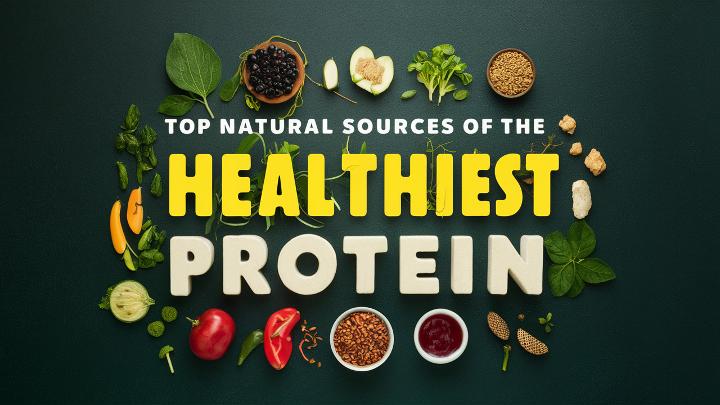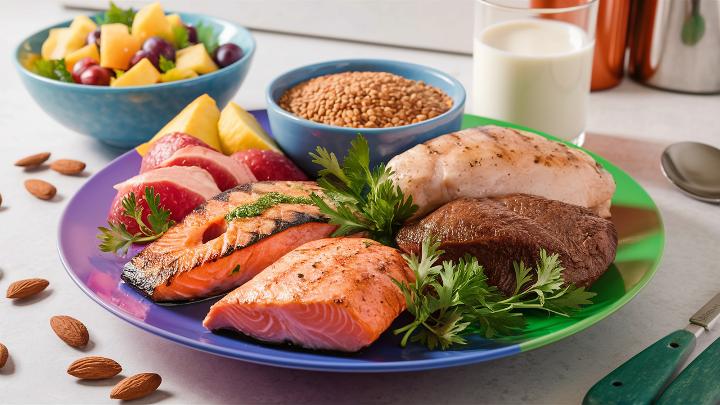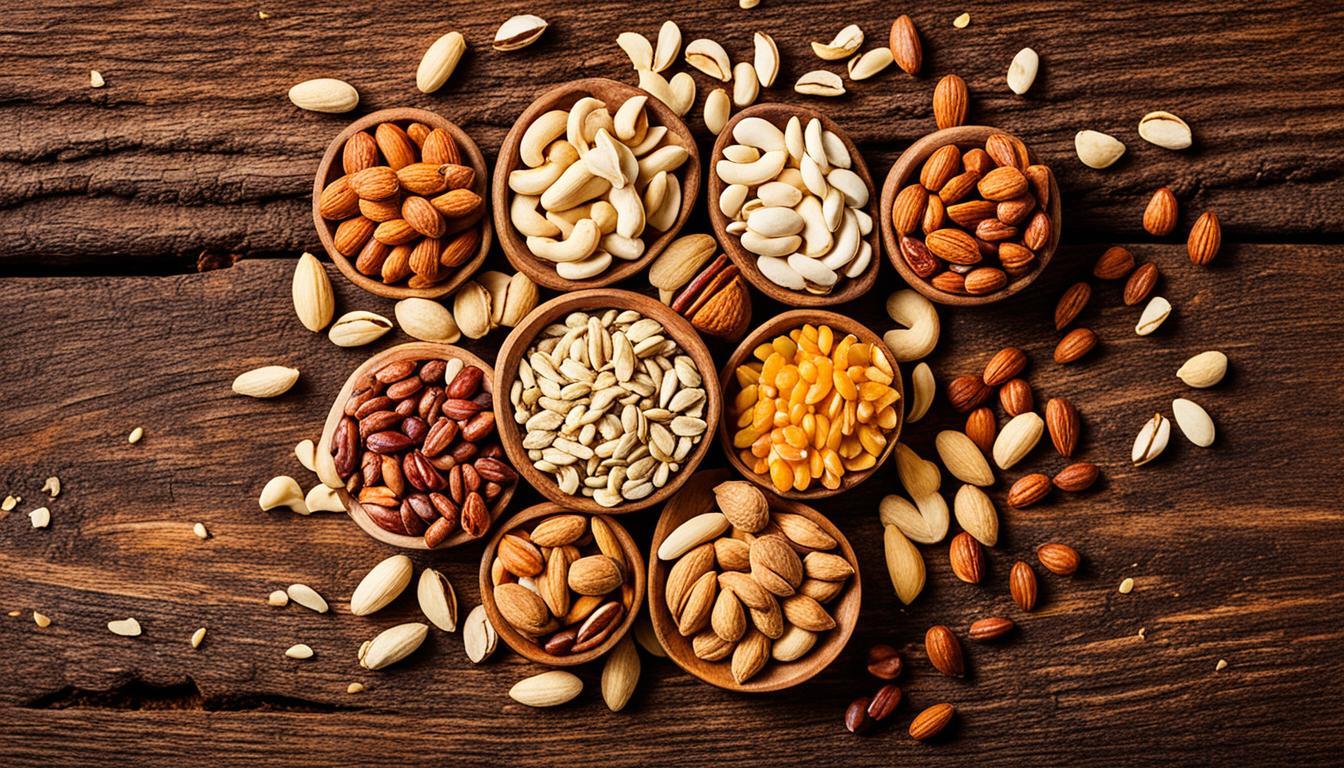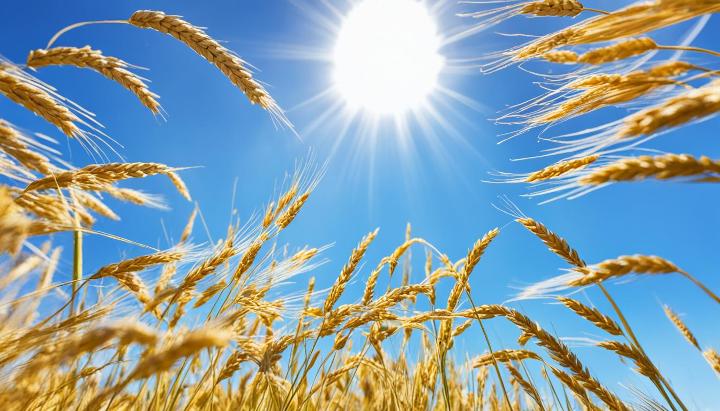Top Natural Sources of The Healthiest Protein

Wondering how to add the best protein sources to your meals? You're in the right place. We'll look at the best natural options for protein. These foods are rich in protein that your body can easily use. They help keep you healthy and strong. You'll find out about meats, seafood, and also plants that are powerhouses of protein. Let's discover tasty and nutritious ways to get your daily protein.
Key Takeaways
- Protein is essential for cell structure, immune function, and overall health.
- Lean meats, seafood, eggs, dairy, and certain plant-based foods are excellent natural sources of high-quality protein.
- Incorporating a variety of protein-rich foods can ensure you obtain a full spectrum of amino acid.
- Consuming adequate protein can help you feel fuller for longer, supporting healthy body weight.
- Supplementing with plant-based or whey protein powders can be a convenient way to boost protein intake.
Introduction to Protein
Protein is key for our health and well-being. It takes part in many important body functions. These include building our cells, aiding in our immune system, helping us move, and making sure our hormones work right.
Nine special amino acids make up protein. Our bodies can't make these essential amino acids without help. So, we have to get them from the food we eat.
Importance of Protein in a Balanced Diet
Having enough protein in our diet is vital. It helps in the growth and repair of our body's cells and tissues. This keeps us full and aids in maintaining a healthy weight.
Protein is also important for our immune system and the production of hormones. It helps with chemical reactions happening all over our body.
Recommended Daily Protein Intake
The suggested daily protein intake is 0.36 grams for every pound you weigh (0.8 g per kg). For example, someone weighing 150 pounds should aim for about 54 grams a day.
But, how much protein you need depends on your age, how active you are, and your health. Talk to a health expert or a dietitian to figure out what's best for you.
Top Natural Sources of The Healthiest Protein
Many whole foods give us top-notch, easy-to-use protein. These are lean meats, seafood, eggs, dairy products, legumes, nuts, seeds, and some whole grains. Animal-based proteins such as meat, poultry, fish, and dairy are usually complete proteins. This means they have all essential amino acids. Plant-based proteins from beans, nuts, and seeds also offer great protein. Yet, they might be short of some essential amino acids. It's best to eat a mix of these protein-rich foods. This way, you can meet your protein needs and get all the amino acids you need.
Protein Source | Protein Content |
Lean Meat | 24-27g per 3-4 oz serving |
Seafood | 20-40g per 4 oz serving |
Dairy (milk, yogurt, cheese) | 6-28g per serving |
Eggs | 6g per large egg |
Legumes (lentils, chickpeas, beans) | 7-9g per 100g cooked |
Nuts and Seeds | 5-8g per 1 oz serving |
Whole Grains (quinoa, Ezekiel bread) | 6-8g per serving |
Soy Products (tofu, tempeh, edamame) | 8-20g per serving |
Eating a good mix of these natural, whole food protein sources helps you get what you need. This is true no matter if you eat everything, don't eat meat, or skip all animal products. There are many tasty and healthy options for you. They will help you reach your health and well-being goals.
Eggs: A Complete Protein Powerhouse
Whole eggs are packed with top-notch, easy-to-use protein. Each large egg has around 6.3 grams. Egg yolks are full of more than just protein. They have vitamins, minerals, good fats, and antioxidants. Eggs can be cooked in many ways. They fit in dishes like scrambles, omelets, and even baked items. Adding whole eggs to your meals helps increase your protein level.
Nutritional Value of Whole Eggs
Aside from being packed with protein, whole eggs offer key vitamins and minerals. A single large egg contains 13% of your daily need for vitamin A. It also has 7% of vitamin B12 and 5% of iron. The egg yolk is quite nutrient-rich. It has a lot of cholesterol, crucial for making hormones and cell walls.
Versatility in Cooking
Eggs are super versatile in the kitchen. You can use them in many dishes, sweet or savory. Think classics like scrambles and frittatas. You can also use them in cakes, cookies, and quiches. Eggs are great for binding, making mixtures smooth, and giving food shape. They are a key player in cooking.

Lean Meats: High-Quality Protein Sources
Lean meats such as chicken, turkey, and beef are top picks for protein. Chicken and turkey breast give you about 26.7 grams and 25.6 grams in a 3.5-ounce serving. Lean beef isn't far behind, bringing 24.6 grams in a 3-ounce serving. It also offers iron, zinc, selenium, and B vitamins.
Benefits of Lean Chicken and Turkey
Adding lean chicken and turkey to your meals ups your protein intake. They're low in fat, which is good for your heart. This makes them ideal for helping your muscles grow and stay strong.
Lean Beef: Moderation is Key
Eating red meat occasionally can still be healthy. But, too much red meat might not be a good idea. Experts warn it could pose certain health risks. That's why it's better to enjoy lean beef as part of a varied, nutritious diet. It's a great way to get plenty of protein and key minerals like iron and zinc.
Fish and Seafood: Nutrient-Dense Proteins
Fish and seafood are top-notch for nutrient-dense protein. They give you important amino acids. Plus, they bring lots of good stuff for your health.
Omega-3 Rich Fatty Fish
Salmon and herring are packed with good-for-you omega-3s. A 4-ounce salmon fillet offers 30.5 grams of protein. Adding these omega-3 fatty fish to your meals is great for both your protein and heart management.
Lean Fish Options
If you're after more protein, choose lean fish like cod. A 6-ounce cod fillet serves up 41 grams of protein. These picks are low in fat and calories, making them a healthy choice.
Shellfish: A Protein Treasure
Shrimp, oysters, and clams also ace the protein game. Just 3 ounces of cooked clams gives you 21.8 grams of protein. Diversifying with shellfish helps hit your daily protein goal.
Legumes: Plant-Based Protein Powerhouses
Lentils, chickpeas, and beans are wonderful sources of plant-based protein. They are easy to add to many meals. These legume protein choices give you plenty of plant-based protein.
Lentils: A Versatile Protein Source
One cooked cup of lentil protein has 9 grams of protein. They are great for soups, stews, and more. Their nutty taste and soft texture make them a top choice for protein.
Chickpeas and Beans: Fiber-Rich Options
Beans protein and Chickpeas are rich in protein. Chickpeas and black beans have 7 and 9 grams of protein per 100 grams. They also offer fiber. Black beans are good for your heart and liver.
Nuts and Seeds: Portable Protein Snacks
Nuts and seeds offer a plant-based boost of protein. They're perfect for a quick, on-the-go snack. Snacking on these nutrient-rich items is an easy way to add protein to your day.
Almonds and Peanuts: Protein-Packed Nuts
Almonds, peanuts, and pistachios are rich in protein. Almonds have 6 grams, while peanuts and pistachios offer 7 and 6 grams. Including a mix of nuts in your diet helps you enjoy various plant proteins.
Nut Butters: A Convenient Option
Nut butters are a great option for protein. Two tablespoons of peanut butter have 7 grams of protein. They are versatile, fitting well in recipes or as a snack with fruit or crackers.
Pumpkin and Sunflower Seeds: Crunchy Protein Boosters
Seeds are also full of protein and make a satisfying snack. A quarter-cup of pumpkin seeds has 8.8 grams of protein. Sunflower seeds, in the same amount, boast 7.25 grams. Their crunchy texture is perfect for dishes or enjoying right out of the bag.

Dairy Products: Calcium-Rich Protein Sources
Milk, yogurt, and cheese are great sources of both protein and calcium. Adding these to your meals boosts your protein intake. It's an easy way to get more protein each day.
Greek Yogurt: A Creamy Protein Delight
Greek yogurt stands out for its high protein content. A 7-ounce serving has nearly 20 grams of dairy protein. Its creamy texture is perfect for breakfast, snacks, or in recipes.
Cottage Cheese: A Versatile Protein Option
Cottage cheese is packed with protein, offering 28 grams per cup. It's pretty neutral in taste and soft, fitting well in sweet or savory dishes. You can enjoy it in breakfast foods or baked meals.
Milk and Cheese: Classic Dairy Proteins
Don't forget about milk and cheeses like cheddar and mozzarella. A cup of milk gives you 8 grams of protein. Cheddar and mozzarella have 4 and 6 grams of protein per ounce. These are perfect for snacks and meals.
Ancient Grains: Surprising Protein Sources
A lot of people don't realize it, but some ancient grains are packed with protein. Take quinoa, for example. It's a full plant-based protein. This means it has all nine essential amino acids. And, if you cook up a cup, you get 8 grams of protein. Then there's Ezekiel bread. It's made with a mix of sprouted grains and legumes. It has more protein than most other breads, offering 6 grams in just one slice. Adding these grains to your diet can easily up your protein game, all from plant-based sources.
Quinoa: A Complete Plant-Based Protein
Quinoa truly stands out. It's an ancient grain that gives you all nine essential amino acids. So, it's a top pick for anyone who's vegetarian or vegan. You get 8 grams of protein in each cooked cup. It's a great way to make sure you're getting the right kind of protein every day.
Ezekiel Bread: A Nutrient-Dense Option
Ezekiel bread is not your average loaf. It's made with sprouted grains and legumes. That means it's a powerhouse when it comes to protein. Enjoying a slice of Ezekiel bread gives you 6 grams of protein. This makes increasing your daily ancient grains protein a walk in the park.

Soy Products: Vegan-Friendly Proteins
Soy products are great for those on a plant-based diet. They offer quality protein. For example, 3-ounce servings of tofu and tempeh give 15 and 20 grams of protein. Soy milk has 8 grams in each cup. Edamame, or soybeans, serve up 8 grams of protein in a cup.
Tofu and Tempeh: Versatile Soy-Based Proteins
Tofu and tempeh stand out for vegan eaters. Tofu is soft and made from soy milk. It can be cooked in many ways. Tempeh is firmer, has a chewy texture, and is packed with nutrients. Both can be in many dishes.
Soy Milk and Edamame: Additional Soy Options
Soy milk and edamame add to the soy protein list. Soy milk has 8 grams of protein in a cup. It’s a healthy choice instead of dairy milk. Edamame, young soybeans, offer 8 grams in a cup. They’re a tasty snack or recipe addition.
Soy foods stand out because they're complete proteins. They have all the amino acids humans need. So, they're a top pick for vegan protein sources and plant-based diets.
Plant-Based Protein Powders: Convenient Supplements
For those who find it hard to get enough protein from just eating, plant-based powders are a great help. They are packed with protein. You can add them to shakes, smoothies, or food to up your daily protein.
Pea Protein Powder
Pea protein powder is made from yellow split peas. It gives you about 15 grams of pea protein powder with every 20-gram scoop. This makes it a top choice for those looking for an easy-to-digest plant-based protein.
Soy Protein Powder
Soy protein powder is a great pick for vegan protein. With each 28-gram scoop, you get 16 grams of high-quality soy protein. Soy is special because it has all the important amino acids our bodies need.
Whey Protein Powder (for non-vegans)
If you don't eat vegan or vegetarian, whey protein powder is ideal. In a 29-gram scoop, it offers about 17 grams of protein supplements. Whey is quick to digest, making it popular among active people.
It doesn't matter if you prefer plant-based or whey protein powders. Adding them to your diet makes it easier to reach your daily protein intake goals. This helps you stay healthy and strong.
Conclusion
Many natural foods offer great protein, like lean meats, fish, dairy, and more. It's key to eat lots of these protein-rich foods to meet our body's needs. This is true no matter our diet type. There are lots of tasty plant-based and lean protein options available. They help us get our daily protein and amino acid needs. This supports our health well.
Focusing on complete proteins and different protein sources is vital. This way, we not only get enough protein but also essential nutrients. It keeps us from having too little protein and helps our body in many ways. From building cells and fighting off sickness to making hormones and other important life processes.
To wrap up, adding a variety of top natural protein sources to what we eat daily is crucial. This is true whether we lean towards animal or plant protein. There are endless tasty and healthy ways to get the protein we need. Doing this helps support our health in many ways.






